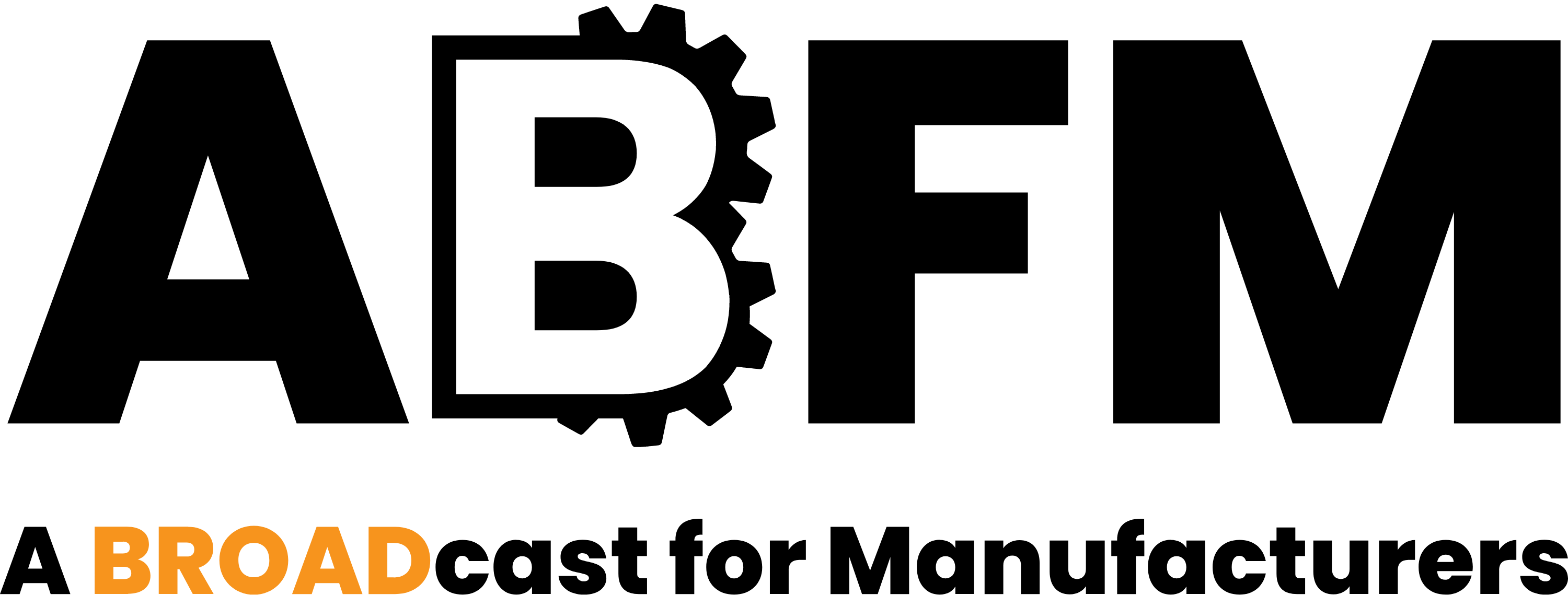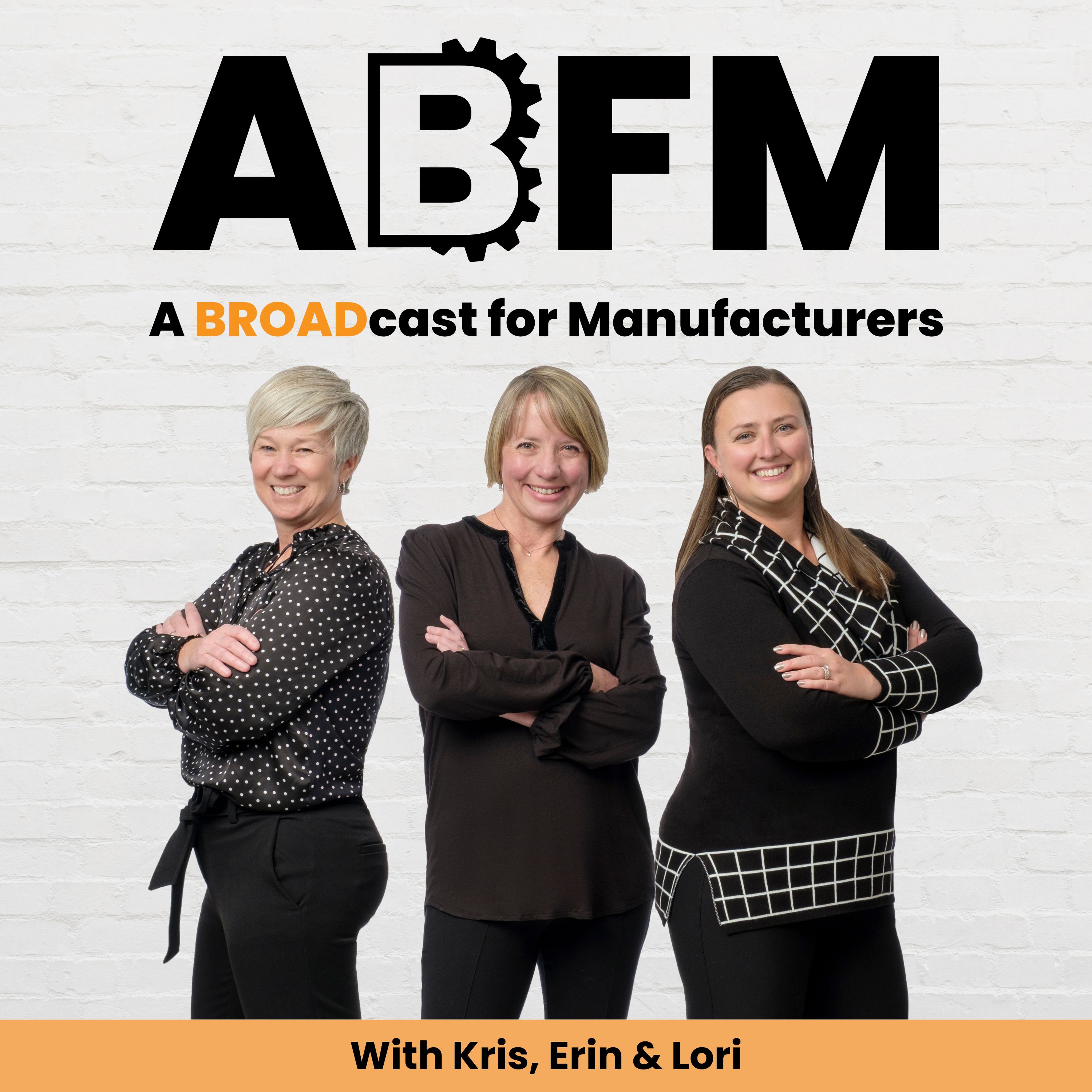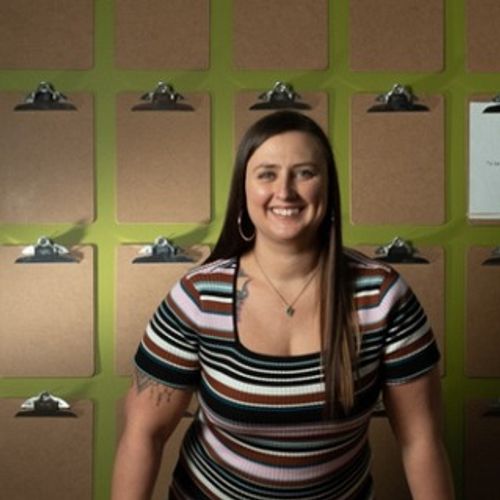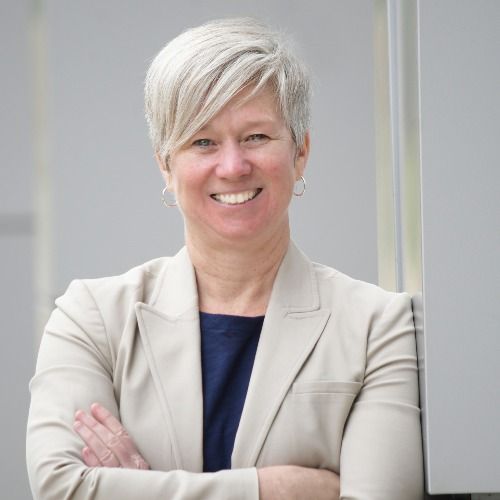Episode 56
56: The Intersection of Mindfulness and Manufacturing- with Trevor Blondeel
Meet Trevor Blondeel
Trevor Blondeel founded Manufacturing Greatness. He has 25 years of experience leading manufacturing plants and is the host of the podcast Mindfulness Manufacturing.
He works with organizations as a speaker, advisor, and coach to connect the top to the shop. In his spare time, he serves as the president for the Kentucky/Indiana National Speakers Association chapter.
Connect with Trevor!
Mindfulness Manufacturing Podcast
Highlights
00:36 Introduction and Recent TV Shows
02:49 Guest Introduction: Trevor Blondeel
03:49 Mindfulness in Manufacturing
06:13 Connecting Leadership and Teams
08:44 Personal Growth and Vulnerability
16:10 Morning Routines and Habits
18:35 Fun Facts and Learnings
24:05 Conclusion and Contact Information
Connect with the broads!
Connect with Lori on LinkedIn and visit www.keystoneclick.com for your strategic digital marketing needs!
Connect with Kris on LinkedIn and visit www.genalpha.com for OEM and aftermarket digital solutions!
Connect with Erin on LinkedIn!
Transcript
[00:01:24] Erin Courtenay: That's easy.
[:[00:01:27] Erin Courtenay: She Hulk. It's freaking great.
[:[00:01:34] Erin Courtenay: Oh, ladies, all the ladies, everybody. It is so good. It is, it's so underappreciated. The lead, she is such a good actress. The premise is hilarious. I could give F all about Marvel generally. So I guess if you're a Marvel person, that's good. But I don't know. But it is very funny. It is very insightful to just modern womanhood, and it's silly and great and I just literally sat on my iPad and just one after another. Yes. So. That was me, She Hulk.
[:[00:02:15] Erin Courtenay: Oh, it's Disney.
[:[00:02:18] Erin Courtenay: Disney. It's an adult show, but it's yeah. And also, don't You know, give it a couple. Like, you know, most of these shows, right? Give it a couple, not just.
[:[00:02:37] Erin Courtenay: She Hulk.
[:[00:02:59] Erin Courtenay: Resident Alien? Is this like a modern show?
[:[00:03:14] Erin Courtenay: My husband loves it, so I'll just send that over to his queue.
[:So our guest today is Trevor Blondeel. He founded Manufacturing Greatness. He has 25 years leading manufacturing plants and is the host of the podcast, Mindfulness Manufacturing. I love the name of that show. He works with organizations as a speaker, advisor, and coach to connect the top to the shop. In his spare time, he serves as the president for the Kentucky/Indiana National Speakers Association chapter. Let's say hello to Trevor. Welcome to the show.
[:[00:04:02] Kris Harrington: Hi Trevor. So great to have you.
[:[00:04:16] Lori Highby: Thank you. Thank you. It, yeah, it, it's, podcasting is a lot of work, but man, we have fun when we do these shows, .
[:[00:04:24] Lori Highby: And you know, before we dive into some, some deeper questions, I'm hoping you could tell us a little bit more about your podcast, Mindfulness Manufacturing. I just think that's a fantastic name of a show and like how did you, more that name and yeah. So tell us more about that.
[:And we had an offsite and the instructor had us put our hands on our legs and close our eyes and focus on our breath. So this is about the year 2000 and I'm like, what are we doing? 10 years ago, I reached back out to him and I said, Hey, Brian, I get it now. Like, I get it now. I wasn't ready to receive it then.
And then it was like, it's actually what I needed. So when the person that's going to be trained is ready, it comes. And then I reconnected with Brian and really got into meditation, and just realized that I wasn't showing up in a way that was serving others. I was showing up the way Trevor thought he could get more work done in manufacturing.
[:[00:05:36] Lori Highby: Definitely a big advocate for meditation. I, and I hear what you're saying and I hear a lot of people struggle. You have to be ready to accept it when, you know, otherwise you're like, what is this woo woo weird stuff like, like you said, you know.
[:And if you lay down in them and there's this big shield that comes over and there's a little lady and she welcomes you to your metro nap. And then they play this music that has been like scientifically proven to soften your brain waves. It definitely helps with the meditation. So if you're struggling, find yourself a metro nap and it might help.
[:[00:06:40] Trevor Blondeel: I could take one of those.
[:[00:06:50] Trevor Blondeel: Well, what I have learned is disconnection is one of the main problems in manufacturing, because when we have a plant or an organization that the top level leadership is really connected to the team members, everybody pulling the handles, everybody on sales, everybody in commercial.
Rarely do I see large problems there. And when I go into different plants, And where, management's kind of in the office and you've got a little bit of the silos going on. There's usually something with safety, quality, or productivity. So I say connect the top of the shop because when you're connected, man, as a team, you can do anything.
[:[00:07:54] Trevor Blondeel: Well, I like chocolate and I always think of a chocolate fountain, like a fondue chocolate fountain. And it all depends on how good that chocolate comes out at the top on what's in the bottom. So it's the top of your organization's behaviors and mindset. So it doesn't matter how good this one department might be. Because I know that because there was a point where I was like, who am I? And I was pushing for results. Like if somebody said, Hey, this needs to happen. I could go through a wall, make it happen. The problem was I'm leaving damage along the way, including my personal relationships. And but I looked at what some other people were doing. It's kind of like, well, I think this is the way you move up in the organization. So I just got to drive people harder. And it's weird. Cause like sometimes when people need help the most, we start to put pressure on them and separate. You better get that done, man, that project isn't done on Friday, that's not gonna be good for you.
You know, like, you know, and I would do that to some maintenance leaders and, and I look back and I'm embarrassed because what that person really needed was to say, Hey man, I know you're really good at your job and I know you're doing your best. What's going on? And I, I really didn't have the skill or maybe the courage to have some of those conversations. And as I started to kind of lean into that more, you know, you can be very accountable with your team and you can be kind. I just didn't know how to do that.
[:[00:09:43] Trevor Blondeel: Oh, one of the people that has inspired me that I fell in love with is Brene Brown. And she's just a master at this, right? And I believe that her voice is so important in manufacturing, because she talks to military, right? And she asked that question to the crowd, that famous question of like, can you have courage without vulnerability? I think there's some persona in manufacturing where you need to have the answers and you need to be confident.
And if we can start to flip that script a little bit to say, You know what, I don't know. Or it just starts with the fact of, instead of just having to put more pressure maybe on that counterpart or that leader, you know, can you be a little more curious? And I think if we bring that attitude of curiosity, the good questions will come, right?
Cause I was a good guy all along. You know, I got along with people, but then sometimes I look back and it would be like, I felt that pressure coming on. So I started putting pressure on others and I wasn't being vulnerable. I wasn't saying, shoot, I don't know how to get this line going or how to get everybody working together. And I'm responsible for a lot here. And now when we get stress, we kind of go back to our default. We're not as mindful, right? Cause when we're not mindful, sometimes we're in stress. So that's why you got to do that practice ahead of time. So when you get into that stressful situation, you can take that breath, step back and kind of just like take a wider lens view at it. Like what's really going on here.
[:[00:11:32] Trevor Blondeel: I think I'm still, I think, I'm still trying to figure that out. Aaron. I don't quite have it yet. One, I, I know that I'm an optimist and sometimes I believe that someone can change more than they do. And that's a trap I catch myself in and it's like, Oh, no, no, like, you know, they can, they can do this. And we're really when I work with someone, they got to have some level of self awareness to start because my ego has gotten in the way of thinking, Oh, yeah, yeah. I just need, I can coach that person. I'm a great coach and, and, but I'm wrong. Because if you're not ready, if you're not open to it, it's not going to work because some people have just made a career out of some of the behaviors are currently have, and they're not interested. But, but I've met some wonderful people that actually connect with me because they're like, Oh, you were like how I am now.
So if they know where they are. They know what their behaviors are now. And if they can envision where they want to be, that's magic. It's like, Oh my gosh, I want to spend time with that person. So exciting. Cause it's kind of like, I know you can change because it's neuroplasticity and it's a skill. It's not how we're born. We can get better.
[:[00:12:48] Kris Harrington: Yeah. I think that awareness is so key to change, right? And sometimes people need a nudge. They have to hear something different to even create their own awareness.
So that's where good coaching can come in. That's where being curious can come in to foster questions that are going to lead to somebody's own awareness that then can facilitate that next step of change. Would you agree with that?
[:[00:14:00] Erin Courtenay: I mean, I love the chocolate peanut butter work that you're doing, because let's all just be honest here, manufacturing is not the forum that we expect to be having some of these conversations. And so I'd love If you could, and I know this is a big ask, but let's say somebody's listening right now and they're thinking yeah, I, this is not at all, you know, I can't go to work and start talking about this stuff. I can't start, you know, this is, you know, I just got to be a businessman. That's how, or woman, that's how I was raised. That's what my community and my culture just doesn't get this stuff. What is something you would want to say to that person where they see the benefit, but they feel that the world around them and that they are in is not supportive or open to it.
What is something you would tell them?
[:And so can you recognize someone else may be in your organization that demonstrates some of those behaviors that you want more of. Is there someone that you feel safe with that cares about you and about, you know, that you can kind of have that conversation because, you know, we can talk ourselves here and you have perspectives, but it's really powerful if you can have somebody within your daily interactions, because that's where you're going to have the greatest impact right away.
[:[00:16:10] Trevor Blondeel: Yeah. So let's see if it's like a peer, like we need each other, right? Yeah. When the stress comes on, you lock arms with those people that, you know, care about you, that have, have your best interest. And, and we really need that through the whole team.
[:[00:16:45] Trevor Blondeel: I'll just. I'm not morning person, right. And this whole mindfulness that we're talking about, I used to set my alarm and then roll into work and, you know, hit the floor and start walking, right? Cause it was like, okay, I want to hit the floor right away. I want to see the end of midnight shift. And then I started biking to work, riding my bicycle. Cause I was like the right distance, right? So I did get some exercise before the morning started. And then I started the Headspace meditation app, right? Cause I just started trying that out a little bit for five minutes in the morning and then that, you know, that leads into journaling, you know, writing down three things I'm grateful for before I start the morning. So I keep on getting up earlier and earlier. I take a three minute cold shower now because I heard, that's kind of like supposed to do different things for your immunity and kind of, it does wakes me up. That's for sure. And I talked to other people doing these cold plunges. I'm not there yet. Yeah. Yeah.
[:[00:17:41] Trevor Blondeel: But yeah, people say like, Oh, like you're just naturally in a good mood. I'm saying not really, I have to work at it. Like, you know, it's what you plan for. So I know that, and if I experiment it, cause if I don't do any exercise in the morning, I'm not as resilient. Sure. I'm not on my game as much. So it's like it's not something for me that comes naturally. It comes from habits and just kind of normal. Yeah. It sounds like in the morning.
[:[00:18:04] Trevor Blondeel: Is that the how all rod was one of my first books that I did read? Yeah. Yeah Yeah, he influenced me for sure. Yeah, and then I think just you start to figure out what works for you, because you know for the listeners go do what I do, but what what's gonna set your mind in a good state before you start hitting that highway of the day?
[:But yeah, you have to be intentional about those things. And wake up a hell of a lot earlier.
[:[00:19:05] Lori Highby: That's fun. Thank you for that. So let's move to the um, I just learned that. Kris, when did you just learn recently?
[:And I don't know if it's my Gen X, it's generational. I still like to have my list and write it out and cross things off, but it would be nice to transfer that to something digital and Microsoft makes it very easy. You can have your open tasks. You can add to them, you can prioritize them, you can check things off when you've completed them.
So that satisfaction that I know I get when I do that is available. So for those that you know, have to carry their laptops or their tablets around anyway, this might be a good alternative for people. What'd you learn, Lori?
[:[00:20:25] Kris Harrington: Ah, I didn't know that.
[:[00:20:33] Kris Harrington: Drop a toast into the wine.
[:[00:20:38] Erin Courtenay: Didn't they drink it
[:[00:20:49] Erin Courtenay: Yeah. Okay. Oh, all right.
[:[00:20:53] Erin Courtenay: Well, I'm also on the linguistic origins route here today. So my son was like, why is it Bluetooth? And I never even thought to ask you. It's a weird word. I said, look it up, and so we looked it up, and this is super interesting. King Harold. Harold Gosman. He's known for two things, uniting Denmark and Norway in the year 9, 9 50, and the other thing he is known for is his dead tooth, which was dark blue and gray in color. So he was called blue tooth. And so uniting tooth. Different, you know, units, that's where they came from. Isn't that interesting? I thought, I mean, I thought it was super interesting.
[:[00:21:46] Erin Courtenay: Yeah. Like, so, yeah.
[:[00:21:51] Erin Courtenay: So, there you have it. Fascinating. Trevor, what'd you get for us?
[:I had, I've had a hundred stories that I had written out from speaking, and two of them were personal. One of them was about my son and his dirty dishes. And basically I go into his apartment and the real short version is, is that I get upset at one of them about the dirty dishes. And then I leave. And then our relationship doesn't go as well, but then I get more curious about them and I find out there's some serious issues going on, but I was focused on the dirty dishes. When I tell that story, and then I connect it to manufacturing, get it more. And like, even when I was, I was studying for my keynote, remembering all the words, and the lessons part, I would start to forget my lines or where I was. Stories. I never forget where I am.
[:[00:22:51] Lori Highby: Yeah. Yeah. There's so much truth to that. I mean, I use analogies all the time and when I'm selling digital, because it's not something to easily comprehend and understand. But yeah, when you tell a story with it, people are like, Oh, I get it now, you know? So yeah, that's awesome.
[:[00:23:11] Erin Courtenay: And, and you just pay so much more attention to, for some reason, like, I'm like, what's this? I want, I want to, as soon as you said, I tell two stories, there's a story about my son. I'm like, if you don't tell me that story, I'm going to make you tell me that story. And then when you did, even though it was the short version, like I immediately in my mind, I'm like, Oh, a factory that's kind of, you know, messy or things aren't going well, that's a good indication, but everybody's focusing on the things that aren't going well. They're not. Focusing on the source or the cause of the conflict that might be behind that. And I'm already there. Like, that was, that was.
[:[00:23:48] Erin Courtenay: Yeah, no, thank you. That was, that's, that's, I, I would, if I could like do a magic wand, I would have a storytelling skill. I just, I think it's amazing when people can do that effectively.
[:[00:24:06] Erin Courtenay: I babble. I get, anyway, that was, that was real, that's really cool. So, so you just understand, everybody listening. Like if you can turn something into a story, 20, did you say 20 times?
[:[00:24:21] Erin Courtenay: Better retention?
[:[00:24:37] Lori Highby: Yeah, yeah. Oh, I love that. Love that. It's so good. Very cool. So Trevor, if anyone listening was interested in getting in touch with you, what's the best way they can reach you?
[:[00:25:10] Lori Highby: Awesome. Yeah. We'll include all that information in our show notes.
Thank you so much for taking the time to share your knowledge and your information with us. Yeah, this is great. And everyone we'll see you next time.
[:[00:25:22] Trevor Blondeel: It was fun.




